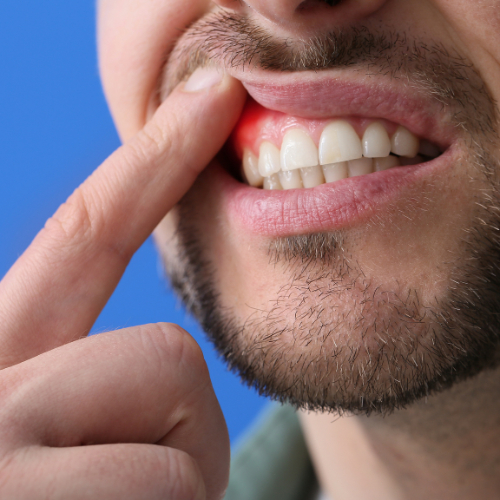- How to Prevent Gum Disease
Effective Strategies for Keeping Your Gums Healthy
Gum disease, also known as periodontal disease, is a common but preventable condition that affects the health of your gums and supporting structures of your teeth. Left untreated, gum disease can lead to tooth loss, gum recession, and even impact your overall health. At Park Boulevard Family Dentistry, we believe prevention is the key to maintaining healthy gums and a beautiful smile. Here’s a comprehensive guide on how to prevent gum disease and keep your oral health in top shape.
What is Gum Disease?
Gum disease begins with inflammation of the gums, also known as gingivitis. Symptoms may include redness, swelling, and bleeding during brushing or flossing. If not treated, gingivitis can progress to periodontitis, a more severe form of gum disease that can damage the bone and tissue supporting your teeth.
The good news is that gum disease is largely preventable with proper care and regular dental visits.
Brush Twice a Day with Proper Technique
Brushing your teeth is your first line of defense against gum disease. Here are some tips to ensure effective brushing:
- Use a Soft-Bristled Toothbrush: Hard bristles can damage your gums over time. A soft-bristled brush is gentle yet effective.
- Choose Fluoride Toothpaste: Fluoride helps strengthen your enamel and reduce the risk of decay, which can contribute to gum problems.
- Brush for Two Minutes: Focus on cleaning all surfaces of your teeth, including along the gumline, where plaque tends to accumulate.
Don’t Skip Flossing
Flossing is essential for removing food particles and plaque from between your teeth and along the gumline. These are areas your toothbrush can’t always reach. To maximize the benefits of flossing:
- Use about 18 inches of floss and gently glide it between each tooth.
- Avoid snapping the floss to prevent injuring your gums.
- Consider using a water flosser if traditional flossing is challenging for you.
Use Antibacterial Mouthwash
Rinsing with an antibacterial mouthwash helps reduce bacteria and plaque in your mouth, which can lower your risk of gum disease. Look for a mouthwash approved by the American Dental Association (ADA) for the best results.
Maintain a Healthy Diet
Your diet plays a significant role in your oral health. Consuming a balanced diet rich in vitamins and minerals can strengthen your gums and teeth. Some tips include:
- Eat Crunchy Fruits and Vegetables: Foods like apples and carrots stimulate saliva production, which helps wash away bacteria.
- Limit Sugary Foods and Drinks: Sugar feeds harmful bacteria in your mouth, increasing the risk of plaque buildup.
Don’t Smoke or Use Tobacco Products
Smoking and tobacco use are significant risk factors for gum disease. They weaken your immune system, making it harder for your gums to fight infections. Quitting smoking not only benefits your oral health but also improves your overall well-being.
Stay Hydrated
Drinking water throughout the day helps keep your mouth clean by washing away food particles and bacteria. Water also encourages saliva production, which is essential for neutralizing acids and preventing plaque buildup.
Schedule Regular Dental Checkups
Regular dental visits are crucial for gum disease prevention. At Park Boulevard Family Dentistry, we recommend seeing your dentist every six months for professional cleanings and exams. During these visits:
- Your hygienist will remove plaque and tartar that can’t be eliminated through brushing and flossing.
- Your dentist will check for early signs of gum disease and provide treatment if necessary.
Recognize the Early Signs of Gum Disease
Understanding the warning signs of gum disease can help you address the problem early. Common symptoms include:
- Red, swollen, or tender gums
- Bleeding gums during brushing or flossing
- Persistent bad breath or a bad taste in your mouth
- Receding gums or teeth that appear longer
If you notice any of these symptoms, contact the best dentist in Pinellas Park, FL, for an evaluation.
Consider Additional Preventive Measures
In some cases, your dentist may recommend additional preventive treatments, such as:
- Fluoride Treatments: To strengthen enamel and protect your gums.
- Dental Sealants: To shield vulnerable areas from plaque buildup.
Partner with a Trusted Dental Team
At Park Boulevard Family Dentistry, we are committed to helping you maintain optimal gum health. Our experienced team provides personalized care and guidance tailored to your specific needs. Whether you’re due for a routine cleaning or have concerns about your gums, we’re here to support you every step of the way.
The Bottom Line
Preventing gum disease starts with a strong at-home oral care routine and regular visits to your dentist. By brushing, flossing, eating a healthy diet, and avoiding harmful habits like smoking, you can keep your gums healthy and your smile bright.
Ready to take the next step in protecting your oral health? Schedule your appointment with the best dentist in Pinellas Park, FL, at Park Boulevard Family Dentistry today. Together, we can ensure your smile stays healthy and beautiful for years to come!
If you’re looking for top-notch dental care in Pinellas Park, FL, contact us today to learn more about how we can help you prevent gum disease and maintain a lifetime of healthy smiles.




